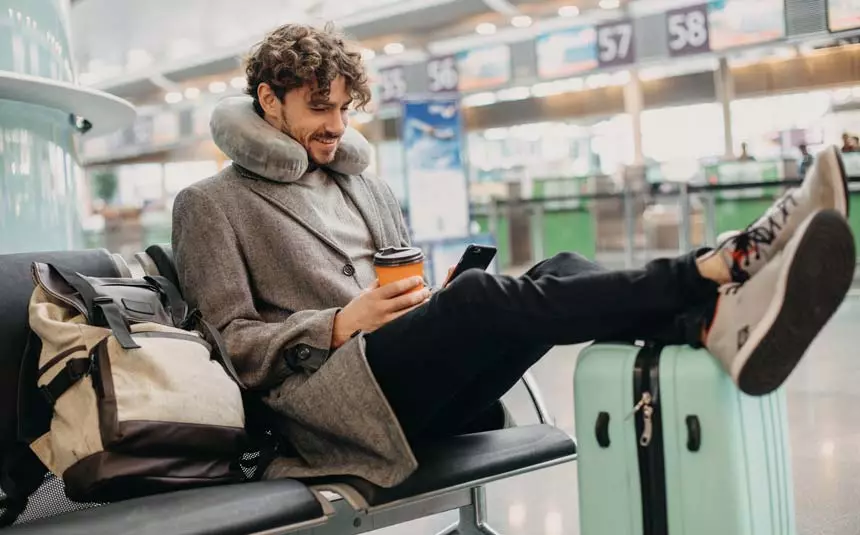How to Maintain Recovery During the Holidays
We’ve strung lights on the Christmas tree, decked the halls, and are gathering to sing carols. It’s official, the holidays are here. Although the weeks from Christmas to New Years can be a joyous time, the season also brings pressure, especially for those newly recovered from addiction. While keeping sober should top your holiday wish list, achieving a sense of calm should also be a goal. To maintain your recovery during the holidays, you have to prioritize it.
For many who are in those first stages of recovery—either recently having completed detox or an outpatient rehab program—the struggle to remain abstinent while heading off to visit loved ones during the holiday season is very real. Whether you’re navigating the bus terminals, airports, or highways, there’s an extra feeling of intensity. Everyone seems charged up about rushing to complete their shopping, attend celebrations, and reunite with loved ones.
With these facts in your mind, here are some tips for remaining sober while traveling during the holiday season.
1. Limit Idle Hours at the Airport
Airports can be a trigger for those still struggling with alcohol or drug abuse. Many relapse on their recovery during the holidays when either going to their destination or heading back.
But, why? For one, it’s nostalgic. Some might recall heading to the airport early before past vacations for a celebratory Bloody Mary (or several) before jetting off to a fantastic destination. Others love the euphoria that sets in from the anticipation of reuniting with a loved one, and that emotional rush can set the wheels of addiction in motion. Finally, there is a sense of having no accountability in airports—they’re filled with strangers, and there’s little chance of running into your sponsor. These mindsets inhibit sobriety during holiday season travel.
As Recovery from Addiction suggests, “Being active will decrease pronounced thoughts about using during these idle periods and gives you a chance to engage in alternative activities that can reduce the boredom, loneliness, and other feelings that often lead to resumed use.”
Therefore, to reduce the likelihood of relapse, arrive in time to make it through pre-flight security checks without stress but not too early. Arrive when you need to, but there really is no reason you should plan to arrive at the terminal more than two hours before your flight boards.
Pack an intriguing book, a good magazine, or word puzzle games to keep your mind active. It’s also fun to people watch and imagine where others are headed off to on their trips.
Or, use the time to squeeze in some exercise and take a few brisk laps around the concourse.
2. Conquer A Fear of Flying
Claustrophobia, turbulence, engine failure—there are countless ways to freak yourself out when it comes to flying. And a typical response to that fear? Finding liquid courage at the bar before boarding. Some find that stress is a good reason to break their recovery during the holidays.
There are many reasons that people fear flying—turbulence, engine trouble, claustrophobia. How do some respond to that fear? Drinking liquid courage at an airport bar before flying.
Instead of imbibing, use some time-proven methods instead.
As the Anxiety and Depression Association of America suggests, acknowledge your fear of flying and the relevant feelings that you face both before and during the flight: “Anticipatory anxiety is what we experience in anticipation of fear. It is often the most intense anxiety you will experience during your flight, but it is not an accurate predictor of how you will feel on the flight. It is frequently far greater than what you actually experience.”
Additionally, be mindful of the triggers that can cause you to relapse such as the offer of a glass of wine from the beverage cart, for instance. Just like at any other point in the year, recovery during the holidays is only possible if you know your triggers.
Ease your mind by learning the safety features of airplanes before your flight day. As you’ve learned in addiction treatment, the more knowledge you have about a subject, the more control you will feel.
3. Employ Proven Coping Strategies
The National Institutes of Health reports states that stress is one of the top contributors to both addiction and relapse. The holidays—along with highs and lows of emotions, buildup of anticipation, added costs and long trips—can amplify our stress levels considerably, rendering many in recovery less equipped to fight slip-ups and cause a relapse.
You’ll undoubtedly find yourself busy during the holiday season, especially if you’re flying a far distance to see family or loved ones, but you must still make stress management a priority.
Remember that regular physical exercise and a nutritious diet will empower you and aid in a feeling of strength. And, relaxing and pampering yourself—a pedicure, manicure, or hot bubble bath—will strengthen your mental well-being and foster a healthy relationship with your body. If you respect your body, you’ll be less likely to want to harm it. Also, call up a sober friend or sponsor to chat when you feel the pressure to use again during the season.
4. Find a Meeting
One of the primary reasons that 12-step programs are so effective that they are everywhere in the US and around the globe. Recovery during the holidays is as simple as finding a meeting.
If your travels tempt you to use because you’re away from your usual support network, break away from family obligations and treat yourself to a meeting. The hour-long session and support from others who struggle could make a difference between relapse and sobriety.
Do not let the holiday season distract you from your goal of sobriety—or lead to relapse. Find out more about sobriety during the holidays by contacting our 24-hour hotline.
Don’t let the holidays detract you from your desire to get sober—or prompt a relapse. Recovery during the holidays is still possible even if you feel you may relapse, or may already have.


